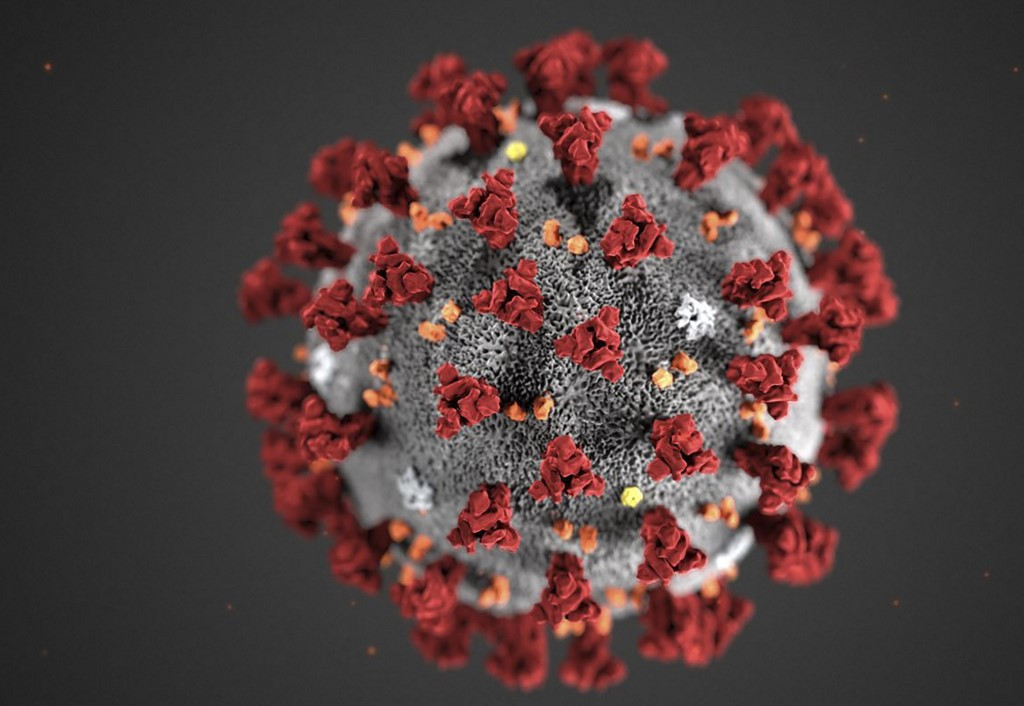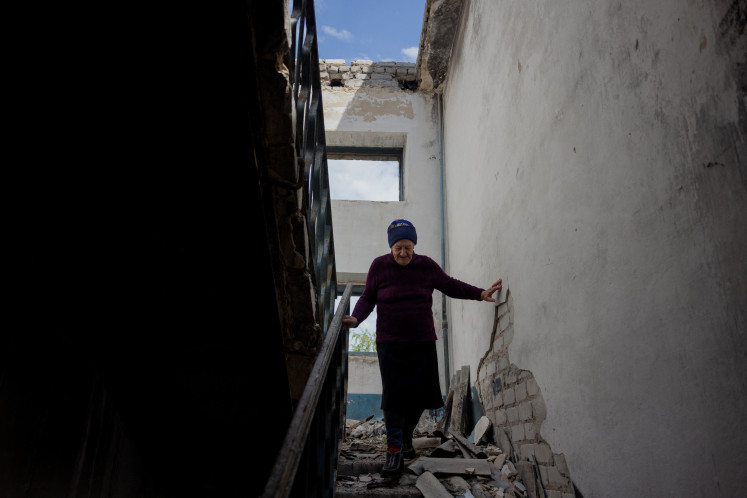Will what's on our plates cause the next pandemic?
Meat markets, factory farms and slaughterhouses provide the perfect breeding ground for coronaviruses and other potentially devastating pathogens.
Change text size
Gift Premium Articles
to Anyone
 This illustration image obtained on Feb. 3 courtesy of the Centers for Disease Control and Prevention, and created at the Centers for Disease Control and Prevention (CDC), reveals ultrastructural morphology exhibited by coronaviruses. (AFP/Lizabeth Menzies / Centers for Disease Control and Prevention )
This illustration image obtained on Feb. 3 courtesy of the Centers for Disease Control and Prevention, and created at the Centers for Disease Control and Prevention (CDC), reveals ultrastructural morphology exhibited by coronaviruses. (AFP/Lizabeth Menzies / Centers for Disease Control and Prevention )
T
he current situation in Indonesia brought about by the novel coronavirus (SARS-CoV-2) makes me want to pull my hair out. Not just because it’s disruptive, but because the signs that an outbreak like COVID-19 would happen were so clear.
Seventeen years ago, when SARS first made headlines, I locked myself in a cage in Hong Kong to illustrate the way our taste for animal flesh contributes to animal-borne diseases. That same year, I wore a hazmat suit to the ASEAN+3 Summit in Bali, where officials were discussing ways to prevent killer diseases. I also dressed as a chicken and demonstrated at a KFC in Bangkok during a deadly bird flu outbreak. All in all, I've spent more than two decades warning people that it's unhealthy – and downright dangerous – to raise animals for food.
Seeing people get sick and die from COVID-19 has only strengthened my resolve to persuade everyone to stop eating animals. We have to learn from past pandemics and go vegan before wearing face masks becomes as commonplace as wearing clothes.
Meat markets, factory farms and slaughterhouses provide the perfect breeding ground for coronaviruses and other potentially devastating pathogens. The high demand for animal-based food means that animals must be mass-produced in crowded, feces-ridden farms and slaughtered on killing floors that are contaminated with blood, vomit and other bodily fluids. Pathogens flourish in such conditions. And when an outbreak does occur, the animals, who have already suffered so much, are slaughtered en masse in horrific ways. I know. I was in Manilla when countless pigs were killed because of a swine flu outbreak.
Some scientists say SARS-CoV-2 started in a Chinese "wet market" that sold seafood, live poultry and exotic animals for human consumption. Others suspect the virus may have been spread by pangolins, scaly anteaters that are often poached and used in traditional Chinese medicine or eaten in China and Vietnam. Whatever its exact origin, SARS-CoV-2 most likely started in animals.
According to the United Nations, 70 percent of new human diseases originate in animals, and most of those are directly linked to animals used for food. Most scientists believe that every flu virus originated in birds, as birds are known to carry every single one of the 144 varieties of influenza.
It's not unusual for animal-borne pathogens to mutate and sicken humans. While precautions such as suspending travel, quarantining at-risk individuals and practicing good hygiene may help stop the spread of COVID-19 and other deadly diseases, we need to take one more significant step to prevent future epidemics of animal-borne diseases in the first place: Stop raising animals for food.
It's bad enough that the consumption of meat and other animal-based food contributes to heart disease, diabetes and cancer and that harmful bacteria, including salmonella and E. coli, found in the intestines and feces of warm-blooded animals, often lead to food-poisoning outbreaks. Do we really want to add potentially deadly animal-borne viruses to the mix?
---
PETA's senior vice president for international campaigns









